The Dana Foundation is a private philanthropic organization with principal interests in science, health and education. The Dana Alliance for Brain Initiatives, a nonprofit organization of more than
300 leading neuroscientists, is committed to advancing public awareness about the progress and promise of brain research and to disseminating information on the brain in an understandable and accessible fashion. Recent neuroscience advances have shown the potential for conquering the devastating diseases and disorders of the brain that afflict millions of people, ranging from cocaine addiction to learning disabilities, from Alzheimer's disease to spinal cord injuries.
In 2007 the Dana Foundation awarded a grant to the Institute of Experimental Medicine ASCR to support the translation of Dana Alliance publications from English into Czech, Hungarian and Polish. To date, a total of ten publications, intended for the general public and focusing on various aspects of neuroscience and brain research, have been translated: the 2008 Progress Report on Brain Research, the 2009 Progress Report on Brain Research, Answering Your Questions About Brain Research, It’s Mindboggling, and More Mindbogglers, as well as five titles in the Staying Sharp series – Quality of Life, Depression, Chronic Health Issues, Learning Throughout Life, and Memory Loss and Aging. In addition, two publications, It’s Mindboggling and More Mindbogglers, have also been translated into Russian.
|
|
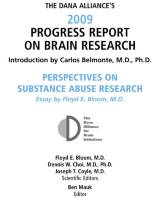 These reports describe and interpret important advances in neuroscience of the previous year, contributing to better diagnosis, prevention, and treatment of the numerous diseases that affect the brain.
|
|
|
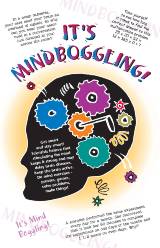 Packed with information about the brain in a fun format of games, riddles, and puzzles, these booklets are perfect for secondary school students. |
|
|
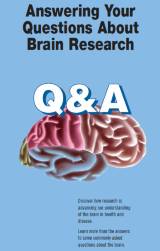 A pamphlet that provides answers to commonly asked questions about the brain and its disorders. Learn whether memory loss is an early sign of Alzheimer’s disease; how brain-imaging techniques have affected neuroscience research and clinical care; what purpose sleep serves for the brain, and more. |
|
|
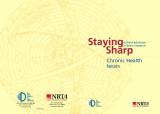 Although the rate of disability among older adults is dropping, half of all Americans live with at least one chronic health problem. For more than one-third of Americans, chronic (long-lasting or recurring) illness takes the form of a brain disorder most often caused by stroke, head injury or degeneration of brain cells. Understanding the "what, when, why, and how" of your illness can help you manage your symptoms, make appropriate life adjustments and regain control of your life. |
|
|
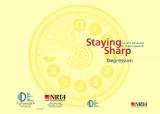 Many people mistakenly believe that depression is normal for older people and that little can be done about it. Depression may be more common among older people, but it is not an inevitable part of aging. Depression is a serious medical disorder with biological causes that can be treated effectively in most people. Find out more about depression as we age and what can be done. |
|
|
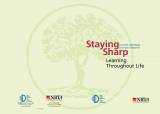 The human brain is a learning machine. But do we learn the same no matter our age? Recent advances in brain research offer good news for anyone interested in maintaining brain health for a lifetime of learning. Learning Through Life provides you with important information to help you rev up your brain for learning. |
|
|
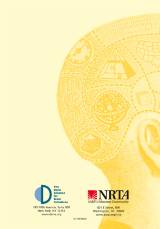 Memory and forgetting are perfectly normal, and essential, parts of everyday life. But what happens when we get older? Is memory loss inevitable; is it an early sign of Alzheimer’s? Learn more about what we can do to preserve our memory and other mental abilities as we age. |
|
|
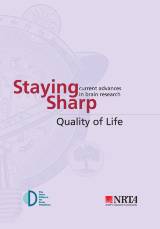 Modern medicine has extended our life span and is now rewriting the old rules of aging. More of us are living longer and want to live life to the fullest, no matter what our age. How much of the aging process is "normal" and how much can we do to improve our quality of life as we get older? Find out more about "cognitive fitness" and what brain research can tell us about the characteristics of successful brain aging. |


























